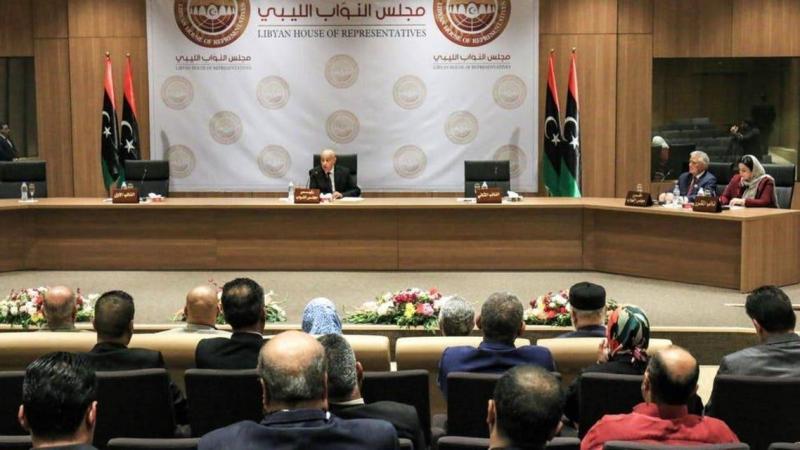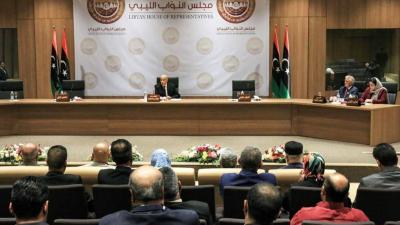The Committee for Following up on the Presidential and Parliamentary Elections in the Libyan House of Representatives called in a statement for the Speaker of the House, Agila Saleh, a candidate for the presidential elections, to return to his position. The committee confirmed in its statement the impossibility of holding the elections scheduled for the 24th of this month on time.
The committee added that re-establishing the political process correctly and removing the obstacles that faced the implementation of electoral laws requires the Speaker of the House to resume his duties. The statement emphasized the necessity of gathering and dedicating national efforts to advance the political process, as well as redrawing the roadmap and addressing the changes resulting from the obstruction of the elections.
Meanwhile, the UN envoy to Libya, Stephanie Williams, stated that she met with a group of members from the Libyan Political Dialogue Forum and engaged in a frank discussion about the electoral process and the implementation of the Forum's roadmap. She added that the discussions focused on moving forward based on a principled stance rooted in the roadmap and the need for free elections.
Additionally, the United Nations Support Mission in Libya expressed its concern over the violence in the capital, Tripoli. The mission called on all Libyan actors to exercise restraint during this critical phase. It stated that the violence in Tripoli undermines the security gains achieved in the country.
This comes as the postponement of the Libyan elections seems unavoidable, amid the unwillingness of any of the country’s active parties to officially announce the step. Preparations for the elections in Libya have stalled due to legal disputes concerning the eligibility of some of the leading candidates, namely Saif al-Islam Qaddafi, Khalifa Haftar, and Abdul Hamid Dbeibeh. Tensions have also escalated in the field following threats from armed militias to prevent the elections, raising fears that holding them could jeopardize stability and threaten the peace process in the country.
It is worth noting that the current executive authorities in Libya took on their tasks in mid-March, completing a smooth transfer of power after a decade of chaos marred by violence. They are also responsible for unifying state institutions and overseeing the transitional phase until the elections on December 24, when their term ends according to the latest roadmap.




